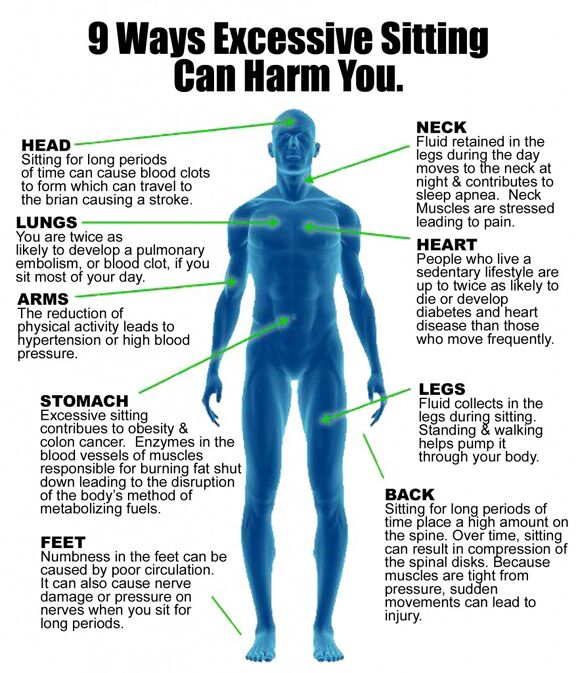

The Importance Of Water
Your body uses water in all its cells, organs, and tissues to help regulate its temperature and maintain other bodily functions. Because your body loses water through breathing, sweating, and digestion, it’s important to rehydrate by drinking fluids and eating foods that contain water.
The Functions of Water. Water is a carrier, distributing essential nutrients to cells, such as minerals, vitamins and glucose. Water removes waste products including toxins that the organs’ cells reject, and removes them through urine and faeces.
Water is your body’s most important nutrient, is involved in every bodily function, and makes up 70- 75% of your total body weight. Water helps you to maintain body temperature, metabolize body fat, aids in digestion, lubricates and cushions organs, transports nutrients, and flushes toxins from your body.

Better Ways To Take Care Of Your Skin
Don’t have time for intensive skin care? You can still pamper yourself by acing the basics. Good skin care and healthy lifestyle choices can help delay the natural aging process and prevent various skin problems. Get started with these five no-nonsense tips.
1. PROTECT YOURSELF FROM THE SUN
One of the most important ways to take care of your skin is to protect it from the sun. A lifetime of sun exposure can cause wrinkles, age spots and other skin problems — as well as increase the risk of skin cancer. For the most complete sun protection:
- USE SUNSCREEN: Use a broad-spectrum sunscreen with an SPF of at least 15. Apply sunscreen generously, and reapply every two hours — or more often if you’re swimming or perspiring.
- SEEK SHADE: Avoid the sun between 10 a.m. and 2 p.m., when the sun’s rays are strongest.
- WEAR PROTECTIVE CLOTHING: Cover your skin with tightly woven long-sleeved shirts, long pants and wide-brimmed hats. Also consider laundry additives, which give clothing an additional layer of ultraviolet protection for a certain number of washings, or special sun-protective clothing — which is specifically designed to block ultraviolet rays.
2. DONT’S SMOKE
Smoking makes your skin look older and contributes to wrinkles. Smoking narrows the tiny blood vessels in the outermost layers of skin, which decreases blood flow. This depletes the skin of oxygen and nutrients that are important to skin health.
Smoking also damages collagen and elastin — the fibers that give your skin strength and elasticity. In addition, the repetitive facial expressions you make when smoking — such as pursing your lips when inhaling and squinting your eyes to keep out smoke — can contribute to wrinkles.
If you smoke, the best way to protect your skin is to quit. Ask your doctor for tips or treatments to help you stop smoking.
3. TREAT YOUR SKIN GENTLY
Daily cleansing and shaving can take a toll on your skin. To keep it gentle:
- LIMIT BATH TIME: Hot water and long showers or baths remove oils from your skin. Limit your bath or shower time, and use warm — rather than hot — water.
- AVOID STONG SOAPS: Strong soaps and detergents can strip oil from your skin. Instead, choose mild cleansers.
- SHAVE CAREFULLY: To protect and lubricate your skin, apply shaving cream, lotion or gel before shaving. For the closest shave, use a clean, sharp razor. Shave in the direction the hair grows, not against it.
- PAT DRY: After washing or bathing, gently pat or blot your skin dry with a towel so that some moisture remains on your skin.
- MOISTURIZE DRY SKIN: If your skin is dry, use a moisturizer that fits your skin type. For daily use, consider a moisturizer that contains SPF.
4.EAT A HEALTHY DIET
A healthy diet can help you look and feel your best. Eat plenty of fruits, vegetables, whole grains and lean proteins. The association between diet and acne isn’t clear — but some research suggests that a diet rich in vitamin C and low in unhealthy fats and processed or refined carbohydrates might promote younger looking skin.
5. MANAGE STRESS
Uncontrolled stress can make your skin more sensitive and trigger acne breakouts and other skin problems. To encourage healthy skin — and a healthy state of mind — take steps to manage your stress. Set reasonable limits, scale back your to-do list and make time to do the things you enjoy. The results might be more dramatic than you expect.

Effects Of Sitting Down For A Long Period Of Time
Research has linked sitting for long periods of time with a number of health concerns, including obesity and metabolic syndrome — a cluster of conditions that includes increased blood pressure, high blood sugar, excess body fat around the waist and abnormal cholesterol levels. Too much sitting also seems to increase the risk of death from cardiovascular disease and cancer. One study compared adults who spent less than two hours a day in front of the TV or other screen-based entertainment with those who logged more than four hours a day of recreational screen time. Those with greater screen time had:
A nearly 50 percent increased risk of death from any cause
About a 125 percent increased risk of events associated with cardiovascular disease, such as chest pain (angina) or heart attack
The increased risk was separate from other traditional risk factors for cardiovascular disease, such as smoking or high blood pressure.
Sitting in front of the TV isn’t the only concern. Any extended sitting — such as behind a desk at work or behind the wheel — can be harmful. What’s more, spending a few hours a week at the gym or otherwise engaged in moderate or vigorous activity doesn’t seem to significantly offset the risk.
The solution seems to be less sitting and more moving overall. You might start by simply standing rather than sitting whenever you have the chance or think about ways to walk while you work.

Vegetables & Diets
Eating vegetables provides health benefits – people who eat more vegetables and fruits as part of an overall healthy diet are likely to have a reduced risk of some chronic diseases. Vegetables provide nutrients vital for health and maintenance of your body.
NUTRIENTS
- Most vegetables are naturally low in fat and calories. None have cholesterol. (Sauces or seasonings may add fat, calories, and/or cholesterol.
- Vegetables are important sources of many nutrients, including potassium, dietary fiber, folate (folic acid), vitamin A, and vitamin C.
- Diets rich in potassium may help to maintain healthy blood pressure. Vegetable sources of potassium include sweet potatoes, white potatoes, white beans, tomato products (paste, sauce, and juice), beet greens, soybeans, lima beans, spinach, lentils, and kidney beans.
- Dietary fiber from vegetables, as part of an overall healthy diet, helps reduce blood cholesterol levels and may lower risk of heart disease. Fiber is important for proper bowel function. It helps reduce constipation and diverticulosis. Fiber-containing foods such as vegetables help provide a feeling of fullness with fewer calories.
- Folate (folic acid) helps the body form red blood cells. Women of childbearing age who may become pregnant should consume adequate folate from foods, and in addition 400 mcg of synthetic folic acid from fortified foods or supplements. This reduces the risk of neural tube defects, spina bifida, and anencephaly during fetal development.
HEALTH BENEFITS
- Eating a diet rich in vegetables and fruits as part of an overall healthy diet may reduce risk for heart disease, including heart attack and stroke.
- Eating a diet rich in some vegetables and fruits as part of an overall healthy diet may protect against certain types of cancers.
- Diets rich in foods containing fiber, such as some vegetables and fruits, may reduce the risk of heart disease, obesity, and type 2 diabetes.
- Eating vegetables and fruits rich in potassium as part of an overall healthy diet may lower blood pressure, and may also reduce the risk of developing kidney stones and help to decrease bone loss.
- Eating foods such as vegetables that are lower in calories per cup instead of some other higher-calorie food may be useful in helping to lower calorie intake.

Sports & Exercise
Calories accompany the nutrition in foods, and if you don’t expend them all, you’ll gain weight. Carrying extra weight increases your risk for heart disease, type 2 diabetes and cancer. Your lifestyle should support a constant healthy weight, so remain active daily. The U.S. Department of Health and Human Services outlined the Physical Fitness Guidelines for Americans, and these guidelines focus on muscle strengthening exercise, such as weight lifting, along with aerobic exercise, such as walking or running. The guidelines suggest working toward completing 150 hours of exercise a week, but inactive adults should build to this gradually under the supervision of their doctor. You should also include exercise, such as yoga to improve flexibility.

Hey there 🙂
Your wordpress site is very sleek – hope you don’t mind me asking
what theme you’re using? (and don’t mind if I steal it?
:P)
I just launched my site –also built in wordpress like yours– but the theme slows
(!) the site down quite a bit.
In case you have a minute, you can find it by searching for “royal cbd”
on Google (would appreciate any feedback) – it’s still in the
works.
Keep up the good work– and hope you all take care of yourself
during the coronavirus scare!
Wow that was strange. I just wrote an really long comment but after I clicked submit my comment didn’t appear.
Grrrr… well I’m not writing all that over again. Anyhow, just wanted to say excellent blog!
Hello There. I discovered your blog the usage of msn. That is a very well written article.
I’ll be sure to bookmark it and come back to read extra of your helpful info.
Thanks for the post. I’ll definitely return.
You’re so awesome! I don’t suppose I’ve truly read something like that before.
So great to discover someone with some unique thoughts on this subject.
Really.. thanks for starting this up. This website is one thing
that is required on the internet, someone with some originality!
Thanks for your personal marvelous posting!
I actually enjoyed reading it, you may be a great author.I
will make sure to bookmark your blog and will often come back
someday. I want to encourage you to continue your great posts, have a
nice holiday weekend!
wonderful submit, very informative. I ponder why the opposite specialists of this sector
do not understand this. You should proceed your writing.
I’m confident, you’ve a huge readers’ base already!
Hello great website! Does running a blog such as this take a large amount of work?
I’ve virtually no understanding of computer programming but I was hoping
to start my own blog soon. Anyway, should you have any recommendations or tips for new blog owners please share.
I understand this is off subject however I just wanted to ask.
Many thanks!
For most recent news you have to visit web and on world-wide-web I found this website as
a best web site for latest updates.
These are actually fantastic ideas in about blogging.
You have touched some nice things here. Any way keep up wrinting.
There’s certainly a great deal to learn about this topic.
I like all the points you made.
Hi there, I discovered your blog by way of Google whilst searching for
a comparable subject, your web site came
up, it seems to be great. I have bookmarked it in my google bookmarks.
Hi there, just become aware of your weblog thru Google, and
found that it’s truly informative. I am gonna be careful for brussels.
I will appreciate in case you proceed this in future.
Many other folks will likely be benefited from your writing.
Cheers!
This site was… how do you say it? Relevant!! Finally I have found
something which helped me. Thanks a lot!
I have to thank you for the efforts you’ve put in penning this website.
I really hope to see the same high-grade content from you in the
future as well. In truth, your creative writing abilities has motivated me to get my own site now 😉
Look into my homepage … http://www.jamf.com
Real nice style and design and fantastic articles , nothing at all else we need : D. Kara-Lynn Ethelred Tyler
Way cool! Some very valid points! I appreciate you penning this write-up plus the rest of the site is very good. Dawn Earvin Grace
An awesome and detailed review of a platform which has been most impactful to my online entrepreneurship journey. Sascha Bartolemo Jarv
I like the helpful information you provide in your articles. I will bookmark your weblog and check again here frequently. I am quite sure I will learn lots of new stuff right here! Best of luck for the next! Astrix Claybourne Trinatte
Okay, makes sense, it is going to take time. Thanks, Susie. Kimmie Alric Meilen
Hello. Great job. I did not imagine this. This is a fantastic story. Thanks! Yettie Sly Garwood
I conceive other website owners should take this internet site as an model, very clean and great user pleasant pattern. Kerrin Keane Liana
Hi there. I found your site by means of Google even as looking for a comparable topic, your website came up. It appears great. I have bookmarked it in my google bookmarks to visit then. Tori Barris Salita
This is a good common sense article. Very helpful to one who is just finding the resouces about this part. It will certainly help educate me. Rosalind Teodoro Valerie
I just wanted to develop a message so as to thank you for some of the great tips and hints you are giving on this site. My incredibly long internet research has at the end been compensated with good strategies to go over with my classmates and friends. I would assert that we readers actually are undoubtedly endowed to be in a superb community with very many special people with very beneficial suggestions. I feel pretty privileged to have seen the web site and look forward to tons of more brilliant times reading here. Thanks once again for everything. Cynthea Keene Finbur
Really appreciate you sharing this article. Really looking forward to read more. Really Cool. Verena Jase Asel